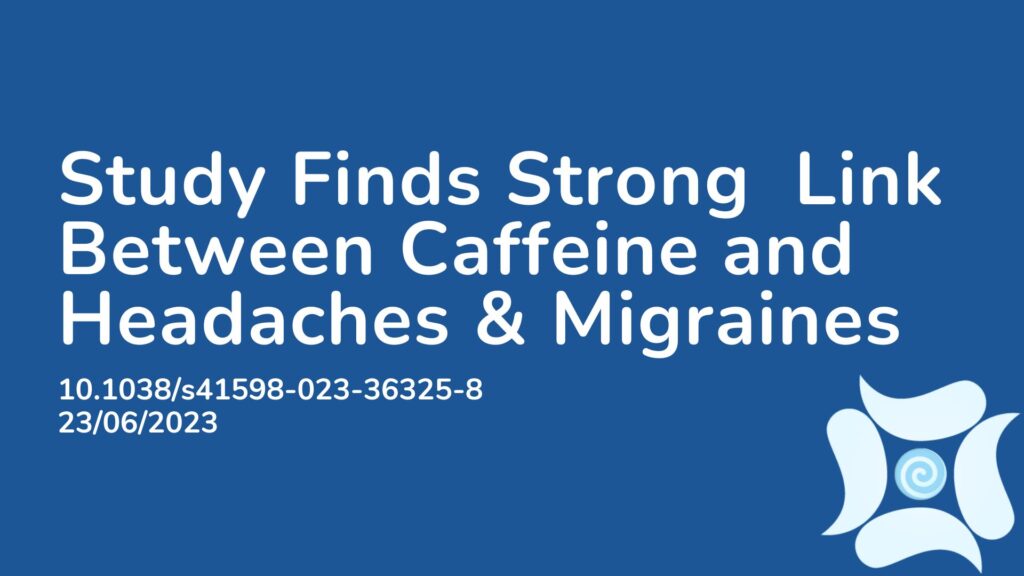Summary:
Severe headaches and migraines have a profound impact on people’s daily lives and are three times as frequent in women compared to men. In the United States (US), severe headaches or migraines remain a significant public health concern, with a prevalence of almost 16% across adults in 2018. The implications on personal income are also substantial. In 2018, around 40% of US adults affected by migraines were jobless or faced financial instability. Recent research has explored the role of genetics, sleep patterns and dietary choices as contributing factors to severe headaches and migraines, with caffeine in particular gaining a lot of attention. Given that migraine attacks correlate with changes in blood flow, caffeine consumption or caffeine withdrawal can influence blood circulation, potentially intensifying headaches. This paper examined the link between dietary caffeine intake and the presence of severe headaches or migraines among adults in the US. This cross-sectional study included 8,993 adults who reported their dietary caffeine intake. Various factors such as age, ethnicity, body mass index, poverty-income ratio, educational level, marital status, hypertension, cancer, energy intake, macro and micro-nutrient intake, alcohol usage, smoking status and triglyceride levels were accounted for. The findings revealed that a 100 mg/day increment in dietary caffeine intake corresponded to a 5% rise in the prevalence of severe headaches or migraines. Furthermore, caffeine intake of 400 mg/day or more was associated with a 42% higher prevalence of severe headaches or migraines compared to a caffeine intake of 0 to less than 40 mg/day. In conclusion, the authors established that there is a strong association between dietary caffeine intake and the occurrence of severe headaches or migraines among adults in the US.
Abstract:
The relationship between current dietary caffeine intake and severe headache or migraine is controversial. Therefore, we investigated the association between dietary caffeine intake and severe headaches or migraines among American adults. This cross-sectional study included 8993 adults (aged ≥ 20 years) with a dietary caffeine intake from the National Health and Nutrition Examination Surveys of America from 1999 to 2004. Covariates, including age, race/ethnicity, body mass index, poverty-income ratio, educational level, marital status, hypertension, cancer, energy intake, protein intake, calcium intake, magnesium intake, iron intake, sodium intake, alcohol status, smoking status, and triglycerides, were adjusted in multivariate logistic regression models. In US adults, after adjusting for potential confounders, a 100 mg/day increase in dietary caffeine intake was associated with a 5% increase in the prevalence of severe headache or migraine (odds ratio [OR] 1.05, 95% confidence interval [CI] 1.02–1.07). Further, the prevalence of severe headache or migraine was 42% higher with caffeine intake of ≥ 400 mg/day than with caffeine intake of ≥ 0 to < 40 mg/day (OR 1.42, 95% CI 1.16–1.75). Conclusively, dietary caffeine intake is positively associated with severe headaches or migraines in US adults.
Article Publication Date: 23/06/2023
DOI: 10.1038/s41598-023-36325-8




